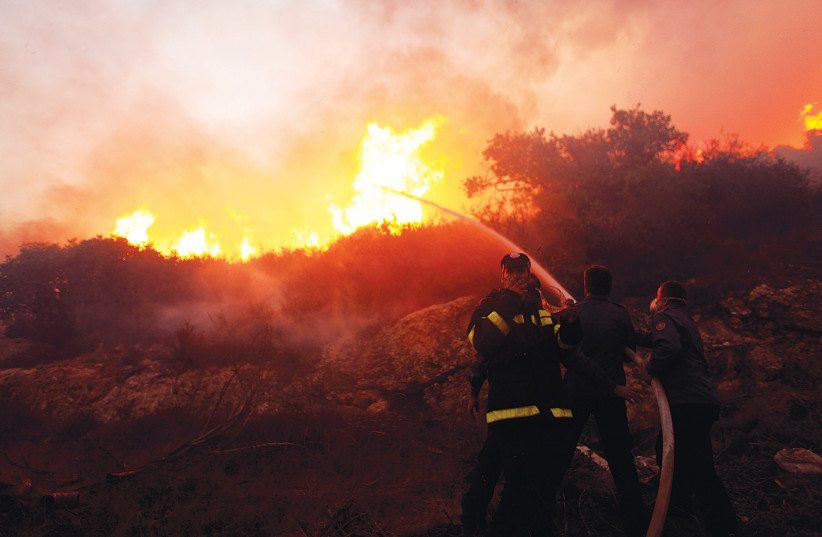A UN Environment Program report found that forest fires are due to increase in frequency by 14% within the next eight years – with a total rise of 50% by the end of the century.
Wildfire frequency will rise due to the effects of climate change, the researchers said. Fires have become more frequent and severe due to the lack of rain and worsening droughts, declining humidity, recurrence of heatwaves and seasonal winds. Simultaneously, major fires are exacerbating global warming, destroying sensitive and high-carbon ecosystems.
UN researchers also point out that fires disproportionately affect the world's poorest regions, preventing them from progressing toward the global organization's sustainable development goals. This will require an understanding of fire behavior, and developing an adaptive and effective interface requires a combination of scientific knowledge and policy, appropriate regulation and incentives for appropriate management of open spaces.
The authors propose to governments around the world to adopt a new "2/3:1/3" preparedness formula where two-thirds of the resources would be invested in planning, prevention, readiness and restoration of forests and ecosystems – and only the remaining third would go towards actually fighting fires.

"We are basically telling governments around the world that they are putting money in the wrong place. There is no doubt that firefighters fighting on the front lines of fire should be provided with the best means to succeed in their mission," according to Prof. Lea Wittenberg, head of the Department of Geography and Environmental Studies at the University of Haifa.
"One of the team's important recommendations, which is certainly true for Israel as well, is aimed at a significant change in resource allocation and improved readiness to deal with fire prevention," she said. "The reality is that wherever there are trees, fires are expected.”
In order to prevent extreme fires, the study’s authors further call for data integration and monitoring, along with the utilization of local expertise and an increase in local and international collaboration – which they believe can be reached through a combination of scientific knowledge and policy, appropriate regulation and incentives for appropriate management of open spaces.
The UN report will be presented at the UN General Assembly conference on environmental issues in Nairobi at the end of the month.
The Environment and Climate Change portal is produced in cooperation with the Goldman Sonnenfeldt School of Sustainability and Climate Change at Ben-Gurion University of the Negev. The Jerusalem Post maintains all editorial decisions related to the content.
